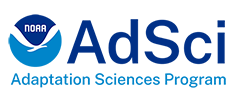Impact of climate and ecosystem change on the California Current forage complex and the fishing communities and predators it sustains






Advancing scientific understanding of climate, improving society’s ability to plan and respond






Advancing scientific understanding of climate, improving society’s ability to plan and respond

